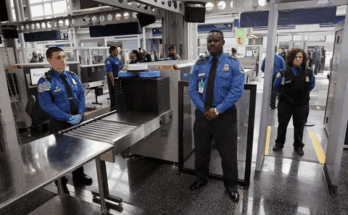Canada Security Guard Jobs
In an increasingly security-conscious world, the role of security guards has become indispensable. From protecting corporate offices and retail stores to ensuring safety at public events and transit systems, security professionals are the unsung heroes maintaining order in our communities. In Canada, this field is thriving, driven by urbanization, rising safety concerns, and evolving regulations. Whether you’re considering a career switch or seeking a stable entry-level job, security guard roles offer diverse opportunities across industries. This article explores the ins and outs of security guard jobs in Canada, including licensing, earning potential, challenges, and pathways to advancement.
The Growing Demand for Security Guards in Canada
Canada’s security industry is booming. According to Statistics Canada, over 150,000 people work in security roles nationwide, with demand projected to grow by 8% over the next decade. Factors fueling this growth include:
- Urbanization: Expanding cities require more personnel to safeguard infrastructure, transit, and public spaces.
- Retail and Commercial Growth: Businesses invest in loss prevention and customer safety.
- High-Profile Events: Concerts, sports games, and festivals need event security.
- Healthcare and Education: Hospitals and schools increasingly hire guards to manage safety protocols.
- Cybersecurity Synergy: Physical security roles now often overlap with digital surveillance systems.
From Vancouver’s bustling ports to Toronto’s financial district, security guards are in demand nationwide.
Types of Security Guard Jobs in Canada
The industry offers a range of roles tailored to different skills and interests:
- Corporate Security
- Guard office buildings, banks, or tech campuses. Responsibilities include access control, monitoring CCTV, and responding to emergencies.
- Employers: Banks (e.g., RBC, TD), tech firms, and property management companies.
- Retail Security
- Prevent theft, assist customers, and manage disputes in stores or malls.
- Employers: Major retailers like Walmart, Loblaws, or Hudson’s Bay.
- Event Security
- Ensure crowd safety at concerts, sports arenas, or festivals. Roles may involve bag checks, conflict resolution, and emergency evacuations.
- Employers: Companies like G4S, GardaWorld, or event organizers.
- Healthcare Security
- Maintain safety in hospitals, clinics, or long-term care facilities. This high-stakes role often involves de-escalating tense situations with patients or visitors.
- Industrial and Construction Security
- Protect remote sites like oil sands in Alberta, mines, or construction zones. These roles may require travel or shift work.
- Government and Transit Security
- Work for public entities like transit authorities (e.g., TTC in Toronto) or federal buildings.
- Mobile Patrol and Alarm Response
- Conduct nighttime checks on vacant properties or respond to alarm triggers.
Requirements to Become a Security Guard in Canada
While entry-level roles are accessible, Canada has strict licensing standards. Requirements vary by province but generally include:
- Licensing
- Ontario: Complete a 40-hour training course, pass the provincial exam, and apply for a license through the Ministry of Community Safety.
- British Columbia: Pass a criminal record check and complete mandatory training through the Justice Institute of BC.
- Alberta: Obtain a Security Services License from the Alberta Solicitor General.
- Other provinces have similar processes, often requiring training in emergency response, legal powers, and public relations.
- Background Checks
- A clean criminal record (no indictable offenses) is mandatory. Fingerprinting may be required.
- Physical Fitness
- Guards must often stand for long periods, patrol large areas, or handle physical altercations.
- First Aid/CPR Certification
- Many employers require Standard First Aid and CPR/AED training.
- Soft Skills
- Communication, conflict resolution, and situational awareness are critical.
Pros and Cons of Security Guard Careers
Pros:
- Job Stability: High demand across sectors, even during economic downturns.
- Diverse Opportunities: Work in corporate, event, healthcare, or specialized roles.
- Career Advancement: Move into supervisory roles, private investigation, or cybersecurity.
- Flexible Shifts: Options for part-time, nights, or weekends.
Cons:
- Physical and Emotional Stress: Risk of confrontations or exposure to emergencies.
- Variable Pay: Entry-level wages start at 16–20/hour, though experienced guards earn up to $30/hour.
- Irregular Hours: Overnight shifts or on-call duties may disrupt work-life balance.
Earnings and Benefits
Salaries vary by role, location, and experience:
- Entry-Level: 16–20/hour (common in retail or mobile patrol).
- Experienced Guards: 22–30/hour (corporate, healthcare, or government roles).
- Specialized Roles: Armed guards or those with cybersecurity training can earn $35+/hour.
Benefits:
- Full-time positions often include health insurance, paid vacation, and pensions (e.g., unionized roles with employers like Paladin Security).
- Gig-style work (e.g., event security) offers flexibility but fewer benefits.
The Impact of Technology on Security Jobs
Technology is reshaping the industry:
- Surveillance Systems: AI-powered cameras can detect anomalies, but human oversight remains crucial.
- Drones and Robotics: Used for patrolling large industrial sites.
- Cybersecurity Integration: Guards now often monitor both physical and digital threats.
Despite automation, human judgment and interpersonal skills remain irreplaceable.
Career Advancement Opportunities
Ambitious guards can climb the ladder by:
- Gaining Certifications:
- Use-of-Force Training
- Emergency Management Certification
- Cybersecurity courses (e.g., CompTIA Security+).
- Moving into Management: Supervisory roles or operations management.
- Branching into Investigations: Become a licensed private investigator.
- Public Sector Roles: Transition to policing or corrections.
How to Get Started
- Research Provincial Requirements: Visit your province’s licensing website (e.g., ServiceOntario for Ontario residents).
- Enroll in Training: Choose a certified program (cost: 200–500).
- Apply for Jobs: Use platforms like Indeed, Workopolis, or specialized agencies like Securitas.
- Network: Join associations like the Canadian Security Association (CANASA) for resources and job leads.
Challenges and How to Overcome Them
- Burnout: Prioritize self-care and seek employers offering mental health support.
- Low Wages Early On: Gain experience and certifications to qualify for higher-paying roles.
- Safety Risks: Choose employers that provide proper training and equipment (e.g., body cameras, panic buttons).
The Future of Security Guard Jobs in Canada
The industry is evolving but remains robust. Emerging trends include:
- Increased Focus on Mental Health: Training guards to handle crises involving vulnerable populations.
- Hybrid Roles: Combining physical security with IT monitoring.
- Climate-Related Risks: More guards needed for disaster response in flood or wildfire-prone areas.
Canada Security Guard Jobs
Security guard jobs in Canada offer far more than just a uniform and a badge. They provide a pathway to a resilient career with opportunities for growth, specialization, and community impact. While the role comes with challenges—from navigating late shifts to managing high-pressure situations—it also rewards dedication with stability and pride in keeping people safe.
Whether you’re drawn to the fast-paced environment of event security or the strategic demands of corporate protection, this field welcomes individuals with vigilance, empathy, and a commitment to service. As Canada’s safety needs grow, so too does the potential for security professionals to build meaningful, long-term careers.



